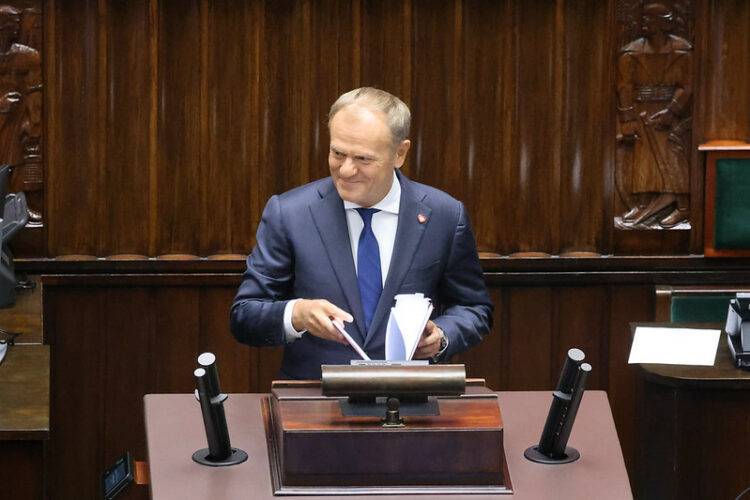Poland’s lower house of parliament, the Sejm, on Wednesday granted a vote of confidence to Prime Minister Donald Tusk’s government, solidifying the ruling coalition’s authority after a heated debate and following a closely contested presidential election.
The vote, which took place after a lengthy and sometimes turbulent parliamentary session, resulted in 243 lawmakers supporting the government and 210 voting against. All 453 deputies present cast a vote, with none abstaining, highlighting the deeply polarized nature of Poland’s current political climate.
This outcome secures the continuation of Tusk’s centrist coalition, which includes the Civic Coalition (KO), the Polish People’s Party-Third Way (PSL-TD), Poland 2050-Third Way (Polska 2050-TD), the Left (Lewica), and independent lawmaker Adam Gomoła. Every member of the coalition backed the government, presenting a unified stance despite growing challenges.
Most opposition votes came from the right-wing Law and Justice (PiS) party, which cast 182 votes against the government. Additional opposition came from the far-right Confederation with 16 votes, the left-wing Razem with 5, the Republicans with 4, and the Confederation of the Polish Crown with 3.
Tusk Seeks Renewed Mandate After Election
Prime Minister Tusk called for the vote of confidence just days after the second round of Poland’s presidential election, in which PiS-backed candidate Karol Nawrocki narrowly defeated KO’s Rafał Trzaskowski by fewer than 370,000 votes. In a televised address after the election, Tusk announced his intention to seek a renewed mandate from parliament, emphasizing the need for “full responsibility for what is happening in Poland” and the importance of stability during a tense political period.
“I am asking for a vote of confidence because I have faith and certainty that we have a mandate to govern, to take full responsibility for what is happening in Poland,” Tusk said during his remarks to lawmakers. He also acknowledged that the challenges facing the country are greater than initially anticipated.
Parliamentary Procedure and Political Stakes
According to Polish law, the prime minister may request a vote of confidence from the Sejm at any time during their term. A simple majority is required for the government to retain its mandate, provided at least half of the 460-member chamber is present. If the government fails to secure the vote, the prime minister must submit their resignation to the president.
With the ruling coalition holding 242 seats—including KO’s 157, PSL-TD’s 32, Poland 2050-TD’s 32, and Lewica’s 21—the vote was expected to pass. Nevertheless, it gave opposition parties a platform to voice their concerns and scrutinize the government’s performance.
Political Climate and Future Challenges
The vote of confidence comes amid deep political divisions in Poland, intensified by the recent presidential election and ongoing debates over the country’s direction in both domestic and foreign policy. Tusk’s government faces increasing pressure to address economic issues, social concerns, and Poland’s relationship with the European Union.
While the coalition’s majority in parliament appears secure, Wednesday’s vote underscored the ongoing rift between the government and opposition, as well as the high stakes surrounding Poland’s political future.
As Tusk’s government continues its work, the coming months are expected to test the coalition’s unity and ability to fulfill its promises in a complex and evolving political landscape.


















